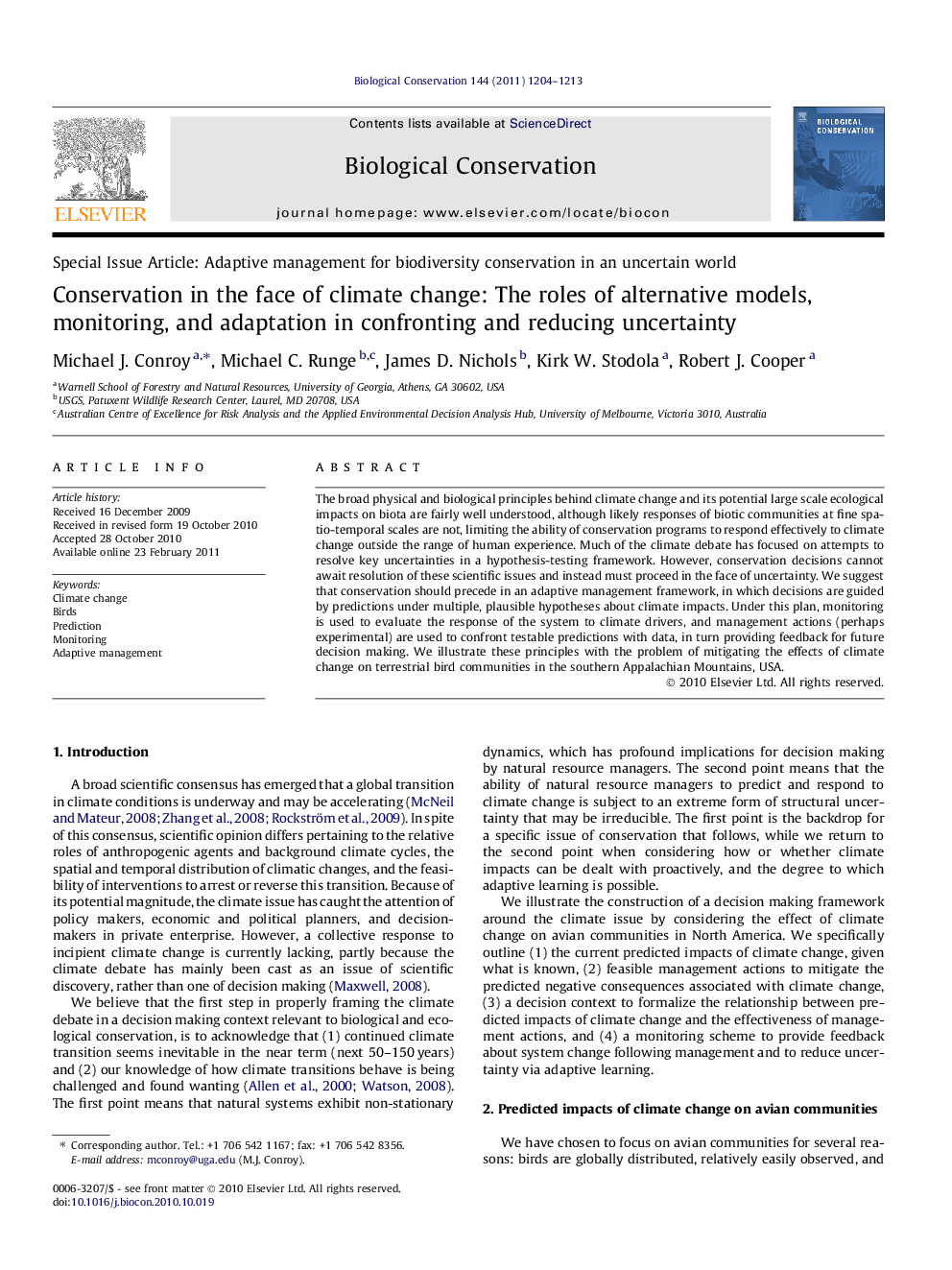| Article ID | Journal | Published Year | Pages | File Type |
|---|---|---|---|---|
| 4385602 | Biological Conservation | 2011 | 10 Pages |
The broad physical and biological principles behind climate change and its potential large scale ecological impacts on biota are fairly well understood, although likely responses of biotic communities at fine spatio-temporal scales are not, limiting the ability of conservation programs to respond effectively to climate change outside the range of human experience. Much of the climate debate has focused on attempts to resolve key uncertainties in a hypothesis-testing framework. However, conservation decisions cannot await resolution of these scientific issues and instead must proceed in the face of uncertainty. We suggest that conservation should precede in an adaptive management framework, in which decisions are guided by predictions under multiple, plausible hypotheses about climate impacts. Under this plan, monitoring is used to evaluate the response of the system to climate drivers, and management actions (perhaps experimental) are used to confront testable predictions with data, in turn providing feedback for future decision making. We illustrate these principles with the problem of mitigating the effects of climate change on terrestrial bird communities in the southern Appalachian Mountains, USA.
